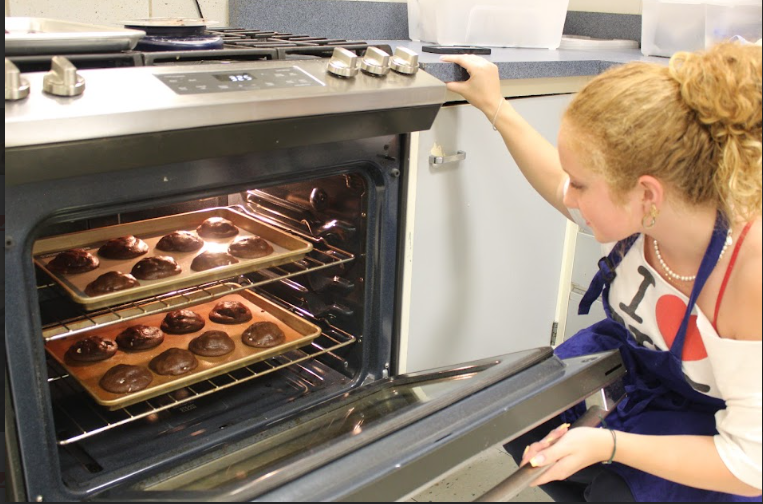Public Displays of Affection, also known as PDA, between couples has elicited reactions in the hallways of South.
According to an Oracle-conducted survey of 114 students, 83 percent have felt uncomfortable by PDA in the past, and 44 percent believe PDA is annoying.
Junior Patricia Ians* believes PDA can corrupt the school atmosphere.
“Displays of affection between people are intimate, and our school, like any other governmental institution, is a public place,” Ians said. “Just as someone wouldn’t partake in PDA in the Glenview Post Office, they shouldn’t partake in it in our school.”
Health teacher Laura Duffy also believes excessive PDA is distracting in a working environment.
“I think it’s okay to hold hands; it’s okay to give a peck, but I really don’t want to see people groping each other because this is where I work,” Duffy said.
Duffy explains that it is better for both the school and the students to save such behavior for a private place.
Similarly, Dean Meghan Bargar believes there is a level of respect that needs to be held throughout the school, which is why students should be careful about the amount of PDA they show.
“If you’re too affectionate, it can make people uncomfortable,” Bargar said. “Our job is to create a safe, friendly environment.”
Senior Steven Mainzer agrees that school is not the right place to show affection.
“A little kiss on the cheek here and there is good, hugging your girlfriend, holding hands with her,” Mainzer said. “You don’t need to [go further].”
While junior Cassandra Michaels* does not go further than a quick kiss in the hallways with her boyfriend, she can see why some couples make this choice.
“If you’re dating somebody, then most of the time you want to kiss them, so if [people] think that’s bad, they are obviously not in a relationship, because you would want to all the time,” Michaels said. “It’s gross when people are [making out in the halls], but I can understand why they do it.”
Sophomore Emily Redden also feels that the amount of PDA shown in the hallway is the choice of the couple.
“I don’t think it’s fair when couples are judged for the amount of PDA they show,” Redden said. “If that’s the way they choose to act, then it’s no one else’s business to judge them or make accusations about their choices. My friends, the couples and even the single ones, are completely comfortable around my boyfriend and I when we display PDA, and I just don’t understand why everyone else can’t be as understanding and leave it alone.”
Redden believes that the amount of discussion over PDA is overdone, and that the relationship is between the couple and no one else. Redden additionally believes there is no established standard for PDA.
“I think the amount of PDA that is appropriate in school depends on how much the couple is comfortable with doing in public,” Redden said. “I know couples that don’t have a problem making out in the halls [as well as] couples that would only hold hands. There really isn’t a standard on it, it’s all up to the couple themselves and everyone else should let them have their own relationship without getting involved, making assumptions or judging them.”
According to Bargar, there is no specific policy for inappropriate PDA at school. Instead, it is left to the discretion of the teacher or administration who is viewing it.
“Typically what I have seen is that if you say something and let them know that it’s making you uncomfortable, I have not seen it happen more than once, not to say that it doesn’t, but if it were to happen again, I don’t know how I would handle it,” Bargar said. “I don’t know if a consequence would be necessary. I think the best consequence probably would be calling home and letting the parents know what you’ve witnessed, and let the kid explain to the parent exactly what happened.”
If students or faculty are uncomfortable with the level of PDA in the hallways, Duffy recommends to say something, if not to the couple itself, to a nearby parapro or faculty member.
“I would try to let the people know that this isn’t cool, especially if it’s in front of your locker, or somewhere you walk past,” Duffy said. “If [someone is] uncomfortable saying something to the students, say something to the teacher whose class it is right outside of, or the parapro who’s stationed right outside the hallway, because they should be able to step in and say something and put some kind of control over it because it doesn’t belong in school.”
Bargar reflected on a specific incident in which she responded to excessive PDA at South by taking action.
“At [the cafeteria], I have gone up to the table and asked the table, ‘Do you like [what that couple is] doing?’ and the table always says, ‘No, we don’t really like it,’” Bargar said. “So I think by the couple seeing that their friends don’t care for their behavior really helps them realize, ‘Okay, we need to knock it off.’”
Junior Anne Margaret Boswell was able to relate with a similar situation in the cafeteria.
“It’s [the] worst when the couple at the table in front of you at lunch makes out the whole time causing you to lose your appetite,” Boswell said.
Other students have expressed incidents in which they felt uncomfortable by the amount of PDA shown at school.
Junior Allie Kahan recalls a time when PDA affected her during a Comedy Sportz show. Comedy Sportz is an improvisation team at South, and according to Kahan, it requires complete concentration in order to follow what is happening in the scene.
“During [the] show I was performing in, there was a couple in the front row that was all over each other, and it was really distracting,” Kahan said. “They couldn’t stop touching [each other], and frankly it disturbed me.”
Junior Delia Franklin* also had an uncomfortable experience at her locker.
“Freshmen year I got lost in the halls and I turned a corner, and without looking up I noticed someone was there, so I asked if they could help me,” Franklin said. “When I looked, they were making out and gave me a really dirty look. It made me [very] uncomfortable.”
While PDA continues to elicit mixed reactions throughout the school, junior Elena Wallace* relates PDA to other habits.
“I don’t mind PDA, as long as it’s not obnoxiously over the top,” Wallace said. “I cannot think of a time where extremism of any sort has not had a negative repercussion. Therefore, just as one, theoretically, should not over-eat, binge drink, or over-analyze, one should not ‘over’ display their affection in public; everything in moderation [is good].”
*Name has been altered to protect student’s identity.








